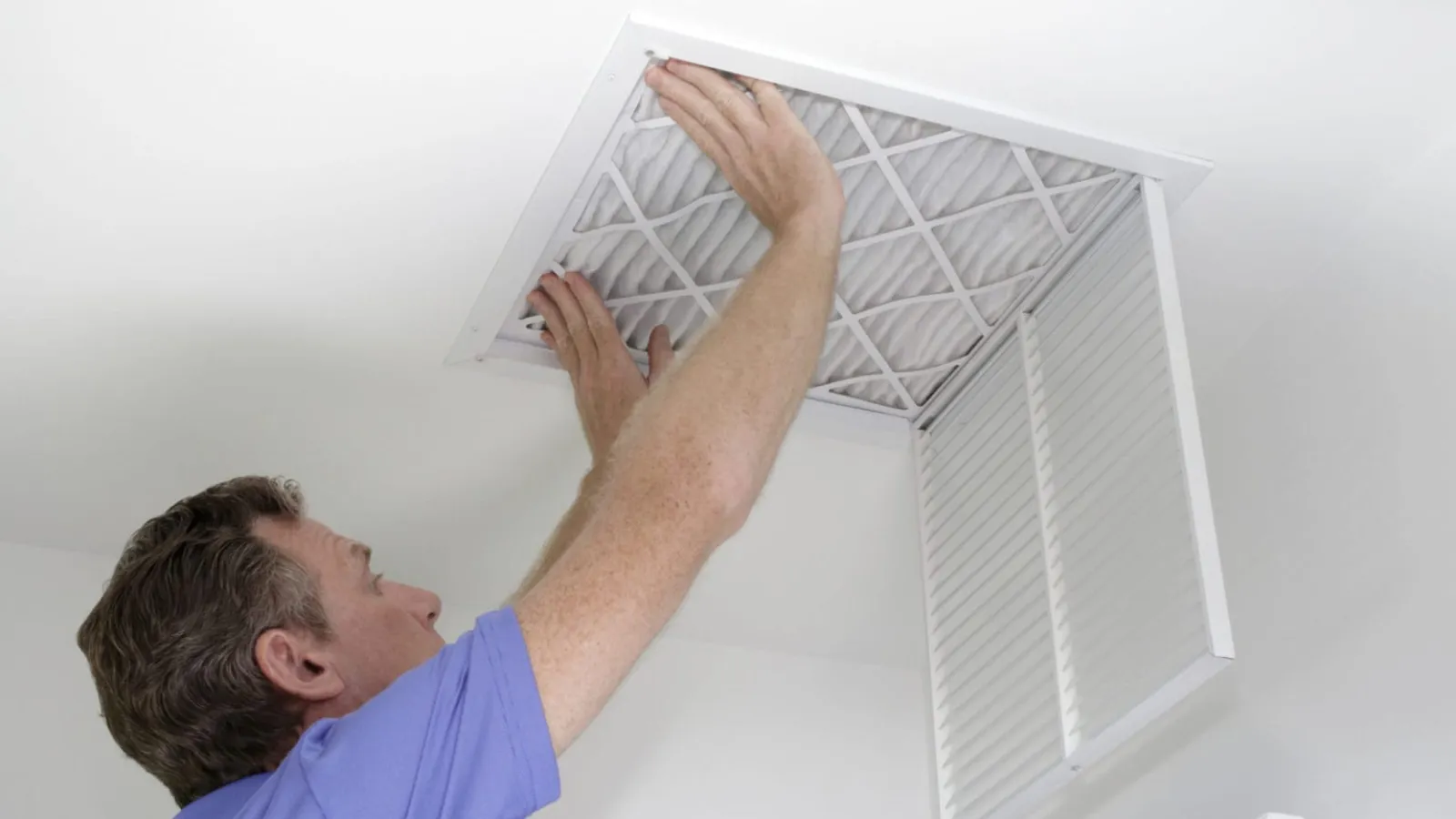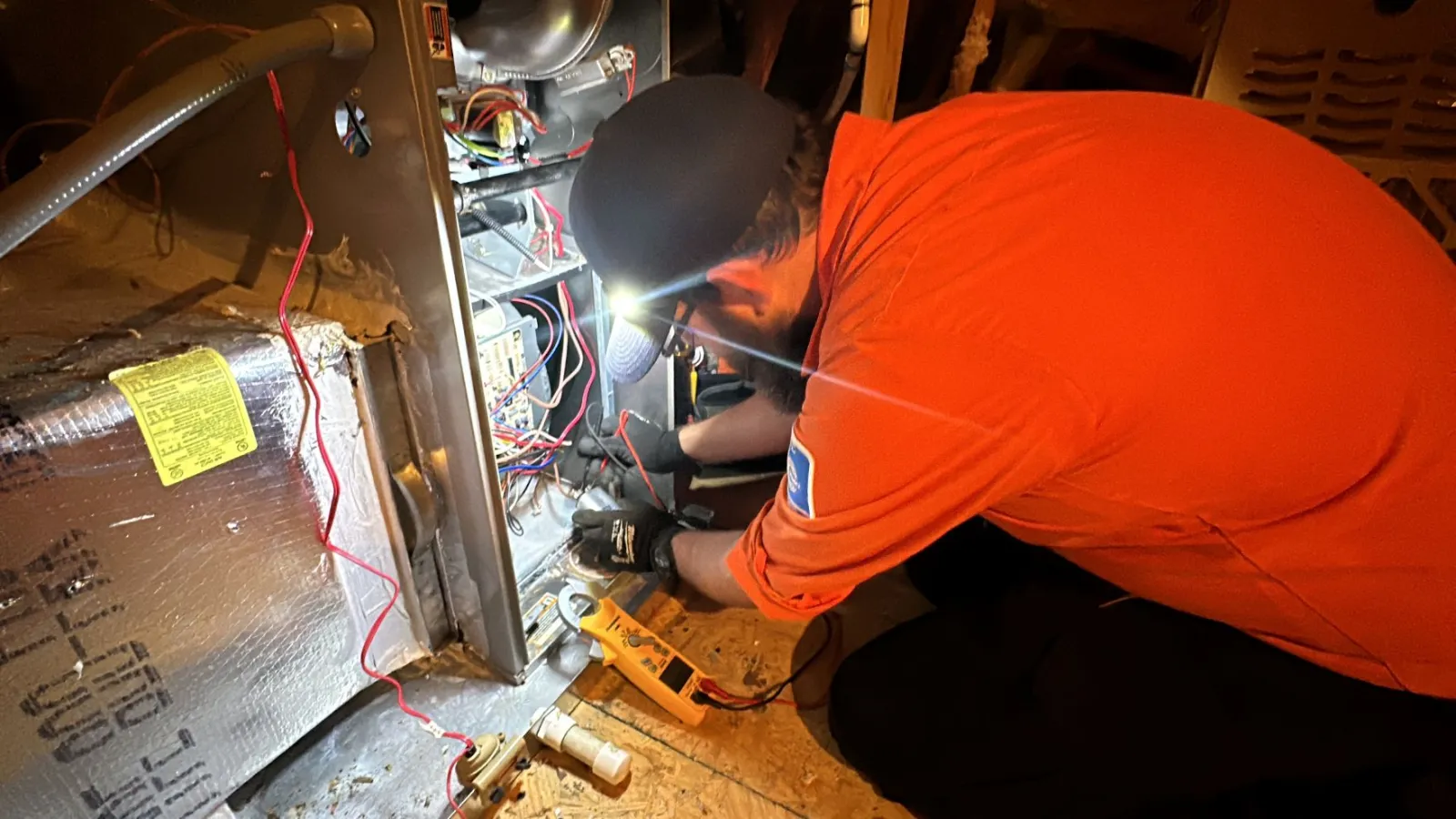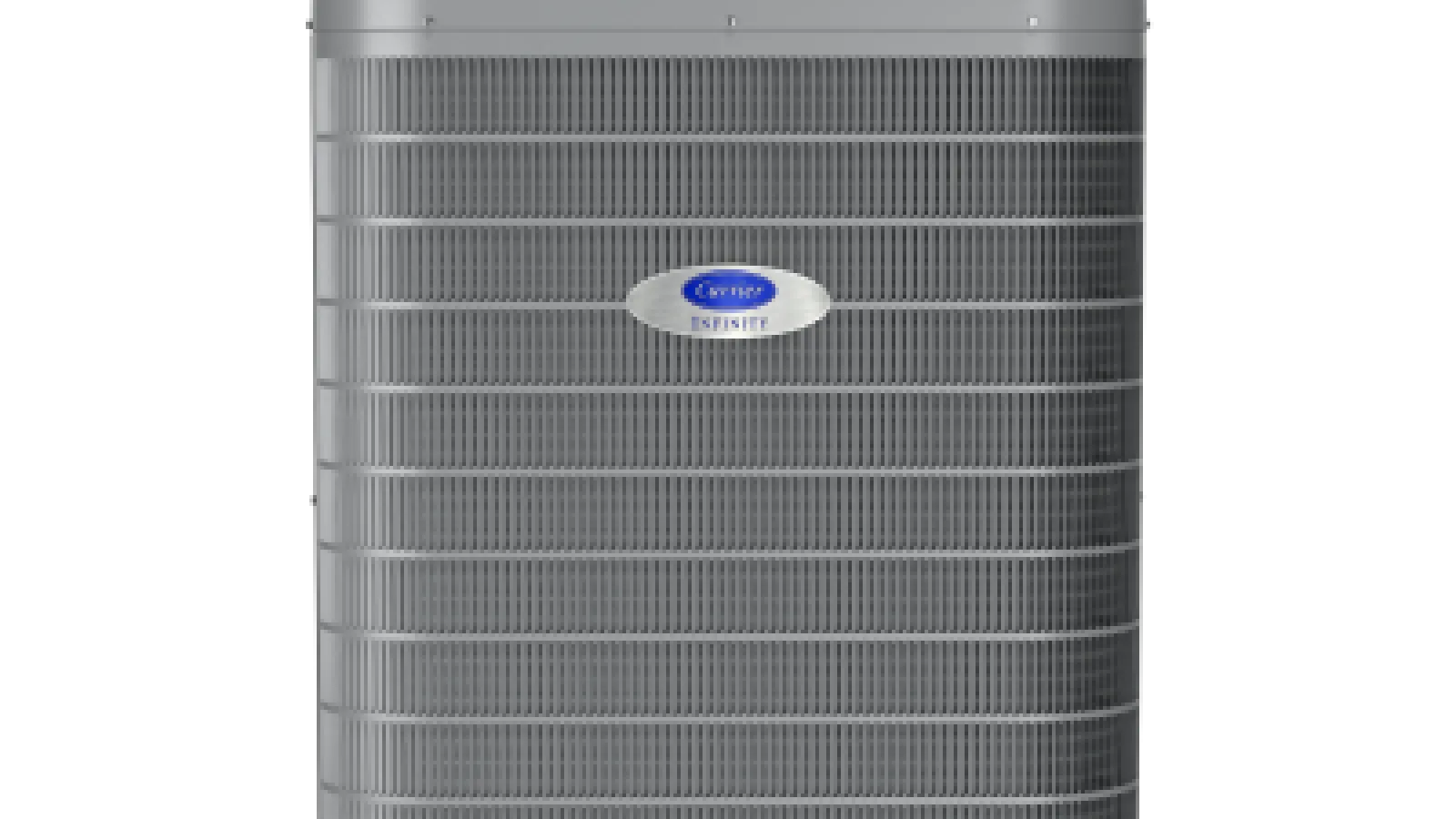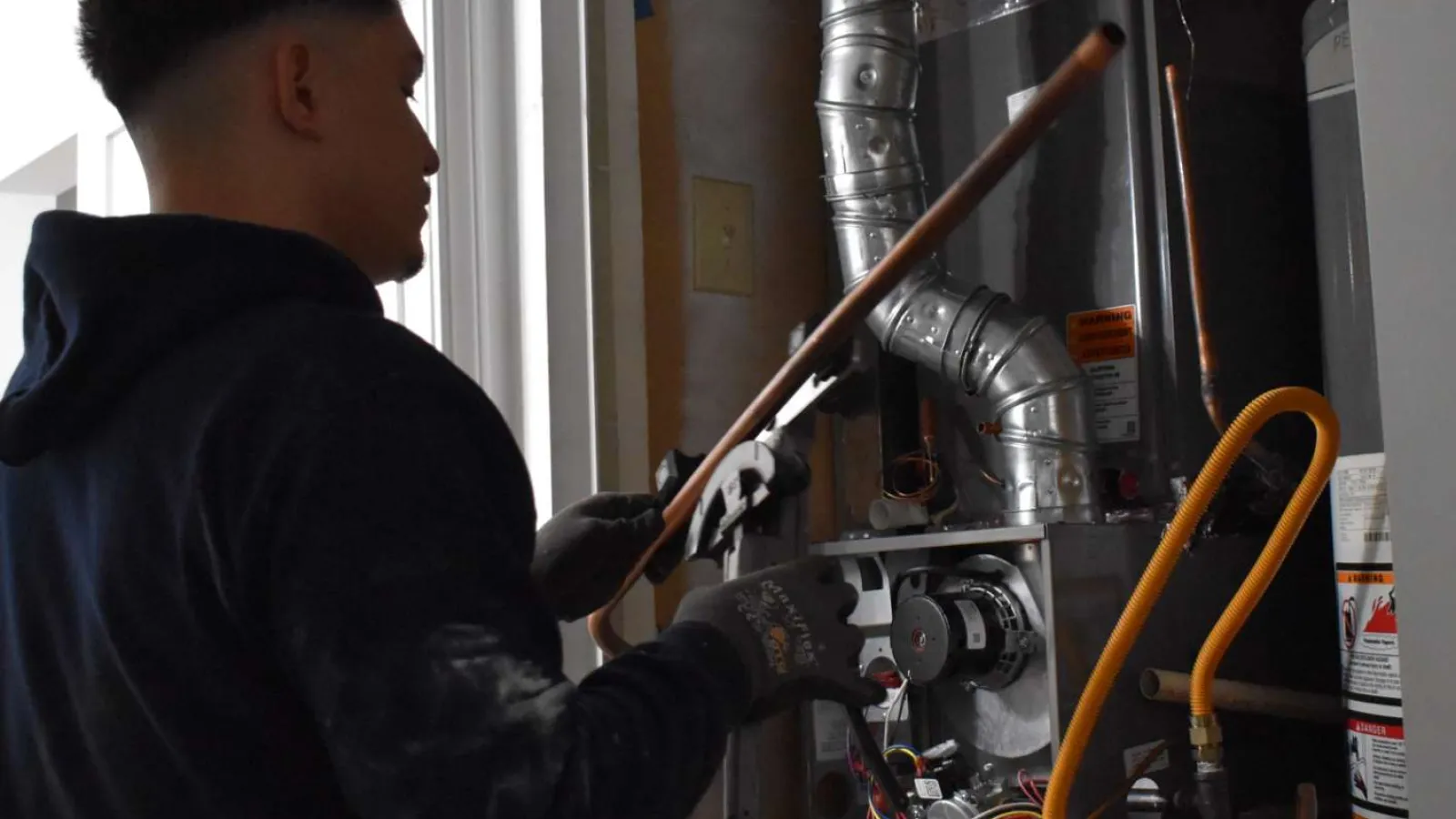Knowing when to change an HVAC air filter is different for every household. While there are “standard” time frames many Atlanta area homeowners know of, these are just general guidelines. The factors of each home and household should be further considered in order to determine how frequently a filter needs to be changed.
Estes Services’ NATE-certified heating and cooling technicians discuss the factors that go into furnace filter replacement intervals. When it’s time to schedule professional maintenance tune up services for your heating and cooling system, don’t forget to call us and schedule your appointment!
When to Change an Air Filter
Filter manufacturers offer guidance about when to change the air filter in your home, which is typically found enclosed with the filter you purchase. It is suggested that filters be replaced according to this schedule:
- Every month for fiberglass filters
- Every three months for 1-inch to 2-inch filters
- Every three months for pleated media filters
- Every six months for 4-inch filters
- Every 12 months for 5-inch filters
It is also recommended that you take a look at your filter on a monthly basis to monitor its condition, as certain factors specific to your home, household and HVAC system negate this schedule and require your filter be changed more frequently. A filter should be replaced more frequently if:
- No filter media left showing
- The home has more dust than usual
- The HVAC system runs more frequently than it usually does
- There are odd odors (particularly a burning smell) coming from your HVAC equipment
- There’s an increase in allergy symptoms among household members
How to Determine When Your Home Requires an Air Filter Change
As you determine when to change the furnace filter in your home, make sure to weigh these factors as you set an interval appropriate for your needs:
Household-Specific Factors
- Allergies and asthma. If members of your household suffer from allergies or asthma, filter replacements need to be more frequent for their benefit. Indoor air is often more polluted than outdoor air, which exposes allergy and asthma sufferers to more triggers existing in the home’s air supply. Change filters every six weeks to help lower the concentration of contaminants in your home’s indoor air.
- Young children. With young children in the home, filter replacements should also be more frequent. More frequent filter changes help you keep your home and its air supply cleaner, so change filters every two to three months.
- Pets. Pets shed hair and dander. If you have dogs, cats and other furry family members in the home, you should change the filter at least every two months.
House-Specific Factors
- The use of windows and doors. If windows and doors are often left open, dust and debris build up in your home and in your indoor air supply faster. For example, leaving windows and doors open often bumps up the need to change 1 to 2-inch filters to every month instead of every three months; 4-inch filters need to be changed every two months instead of every six months; and 5-inch filters need a change every three months instead of every 12 months. Your use of open windows and doors likely changes seasonally, so you need to reevaluate your schedule for when to change air filters throughout the year.
- Home size. Fewer heating and cooling cycles extend the life of the filter, so smaller homes are typically able to go longer between filter changes than neighbors in larger homes.
- Air quality. The quality of the air outside and inside your home affects filter life. Some of the factors that can lead to higher concentrations of contaminants in a home include outdoor air pollution, spray cleaners, perfumes, cigarette smoke and candles. Changing your filter more regularly can improve your indoor air quality.
HVAC System-Specific Factors
- System usage. During periods of the year where the heating and air conditioning system is used sparingly, such as during the spring or fall when temperatures are milder, your filter is likely to last a bit longer than expected. Alternatively, during the heat of summer or dead of winter, your HVAC system is used sometimes round the clock, so filters fill up with contaminants faster and require more frequent changes.
- Fan usage. If you use the system’s fan outside of heating and cooling cycles to circulate air through your home, air filter replacements need to be done more frequently. This is because there is more air moving through, which leads to greater opportunities for the filter to catch contaminants. Constant use means filter changes are needed monthly or every two months.
Why You Need to Change Your HVAC Air Filters
- Increased energy efficiency is the most important reason for regularly changing your air filter. A heating and cooling system with a clean filter operates more efficiently, using less energy to keep your home comfortable.
- A dirty or clogged filter forces your HVAC system to work harder and longer to maintain even temperatures throughout your home. The added strain on your system causes more wear and tear to the components inside and shortens your unit’s lifespan. You experience fewer breakdowns and malfunctions with your furnace and air conditioner when you replace the filter regularly.
- Clogged air filters restrict proper airflow throughout your HVAC system and ductwork, which wastes precious energy as you attempt to heat or cool every room in your house.
- Checking and changing air filters regularly improves the health of you and your loved ones. Dust, dirt and other debris build up inside your unit and the ductwork if the air filter has become clogged. These indoor pollutants circulate throughout your home whenever the system operates, which exposes your family to increased contaminants.
- A dirty filter damages your system when the inner components are caked with dust and debris. The evaporator coil absorbs heat as it passes over the coils for cooling, or releases heat into the air for heating. If the air filter is clogged, air movement becomes restricted, which causes coils to freeze. When your coils freeze, it creates a barrier that further prevents efficient system performance and leads to more HVAC repairs in the future due to stress on the system.
Choose Estes for HVAC System Care
The heating and cooling professionals of Estes Services are here to help you best care for your Atlanta home’s HVAC equipment. Have an HVAC technician perform a tune up per year for your furnace and air conditioning system. Spring and fall are the best times to have a maintenance tune up performed – contact us today to schedule service!




